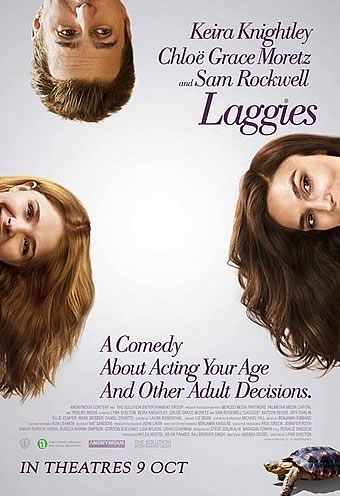BRAIN ON FIRE (2016)
Genre: Drama
Director: Gerard Barrett
Cast: Chloe Grace Moretz, Thomas Mann, Carrie-Anne Moss, Richard Armitage, Jenny Slate, Tyler Perry
Runtime: 1 hr 30 mins
Rating: PG13 (Some Disturbing Scenes)
Released By: Shaw
Official Website: http://www.brainonfiremovie.com
Opening Day: 4 May 2017
Synopsis: Brain on Fire follows Cahalan (Moretz), a rising journalist at the New York Post who mysteriously starts having seizures and hearing voices. As weeks go by and Susannah rapidly descends into insanity, she moves inexplicably from violence to catatonia. Following a series of outbursts, misdiagnoses and a prolonged hospital stay, a lucky last-minute intervention by one doctor finally gives her a diagnosis and hope to rebuild her life.
Movie Review:
Twenty-one year-old Susannah Cahalan was living her dream job as a reporter for the New York Post when she starts zoning out at random moments, suffering from headaches, losing time, missing deadlines and meetings, and imagining stuff like bedbug bites and leaking faucets. Pretty soon, her condition gets worse – from seizures to paranoid episodes to manic mood swings to catatonia, she exhibited more and more the symptoms of what abnormal psychology would easily classify as bipolar disorder and/or schizophrenia. The cause? Her regular family doctor says it all comes down to withdrawal from alcohol, partying too much and working too hard. A three-person panel of doctors at the hospital she has been admitted to since she deteriorated recommends that she be transferred to a psychiatric hospital so she can receive the proper treatment. The truth is neither; rather, she has been struck by anti-NMDA receptor encephalitis, a rare auto-immune disorder that causes the body to attack the brain and hence causing the titular syndrome.
‘Brain on Fire’ is Susannah’s story, based upon her bestselling memoir of the same time. Some critics have dismissed it as yet another ‘disease-of-the-week’ drama, but we suspect their brains may have very well been burnt. This is not just your typical Lifetime movie about a perfectly normal individual whose life comes crashing down after he or she contracts a debilitating disease; it is that and much more. In fact, it is most fundamentally about our healthcare system, its reflexes, limitations and consequences on the individual as well as his or her loved ones. It is about a system whose reflexes have been built upon psychiatric drugs to treat manic and psychotic behavior, rather than say trying to understand why a person’s brain is causing him or her to respond in such a manner. It is about a system who is limited by knowledge and expertise, both of which may exist in pockets within the medical fraternity but not widespread enough to benefit the system as a whole. And last but not least, it is about the consequences of these reflexes and limitations on those who need help – either freeing them to be able to live their lives to its fullest or dooming them to a lifetime of psychiatry – and in turn the joy or dismay of their loved ones.
Because it is told from Susannah’s (Chloe Grace Moretz) perspective, these intents may not be entirely obvious until late into the movie. We see therefore in the first act the life she was leading – an aspiring musician boyfriend Stephen (Thomas Mann) who describes his sound as ‘The Smiths meets Tom Waits’, a pair of divorced parents (Richard Armitage and Carrie Anne-Moss) on perfectly amicable terms, a chummy dead-panning work colleague (Jenny Slate), and a tough but compassionate editor (Tyler Perry) – as well as how it gradually falls apart as she deteriorates. We feel her helplessness as well as that of her parents and boyfriend as she goes from high highs to low lows while on medications that don’t seem to work and diagnoses that don’t seem to make sense. And it is only towards the end that we encounter her savior Dr Souhel Najjar (Navid Negahban), who through a series of observations as well as practical ability tests manage to diagnose exactly what was afflicting her in the first place. While the experience is meant to be intimate, the lessons to be drawn are systemic, and ‘Brain on Fire’s’ profundity lies in the latter.
Notwithstanding, writer-director Gerard Barrett does a fine job with the former too. As the visuals draft in and out of focus and get occasionally disjointed whenever Susannah is dead centre in the frame, the sounds blur and echo too, coupled with intrusive noises and thoughts that drown out all the rest. There is no way we can fully comprehend what Susannah was going through mentally, but Barrett approximates that rather successfully. Some of the character relationships could have been better sketched, such as that between Susannah and Stephen (whom she eventually married by the way), but the confusion, exasperation and ultimately relief of her parents is unmistakable. He has also cast his film well, and the ensemble make the most of their supporting roles alongside a sincere but sometimes slightly lacking lead performance by Moretz, who still does admirably transiting from the adolescent roles of ‘Kick-Ass’ and ‘Carrie’ to that of a much grown-up character.
But like we said, ‘Brain on Fire’ isn’t about Susannah per se, but rather what her experience says about the healthcare system. It is for this reason that the real-life Susannah had chosen to write a memoir rather than stay quiet about what she had gone through. It is for this reason that she had since openly spoken about her traumatic month of madness, and supported organisations as well as Dr Najjar’s work in expanding the knowledge and expertise in encephalitis with the wider medical community. And it is for this reason that the movie isn’t just your ‘disease of the week’ drama or some ‘medical misfire’ – those critics be damned, we say – but really an illuminating account that needs to be heard, seen and shared so that many and more like her who have similar conditions may receive timely treatment to be able to live their lives fully again once more. Yes, it may not be perfect as a movie, but its purpose is clear, noble and significant, and for that reason deserves to catch fire.
Movie Rating:




(Like its protagonist's experience, this woefully misjudged drama about the reflexes, limitations and consequences of the healthcare system deserves to be heard, seen and shared)
Review by Gabriel Chong
You might also like:
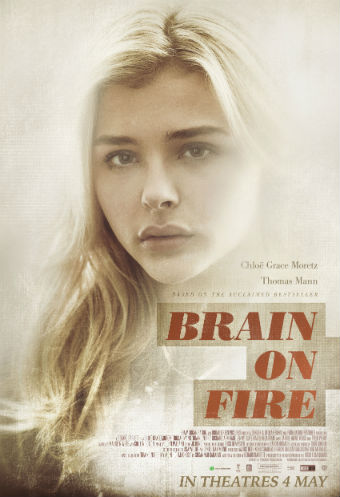
Movie Stills

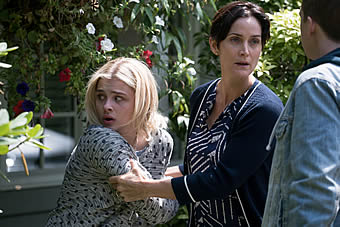
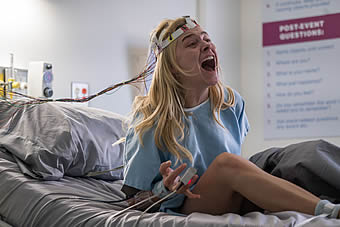



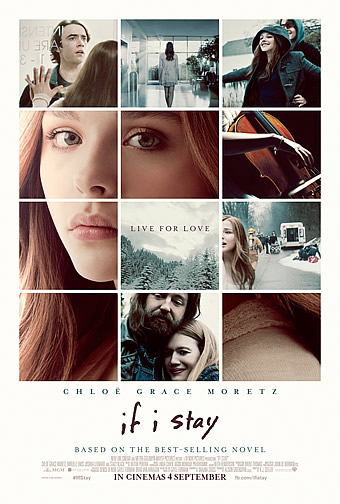
.jpg)
.jpg)
